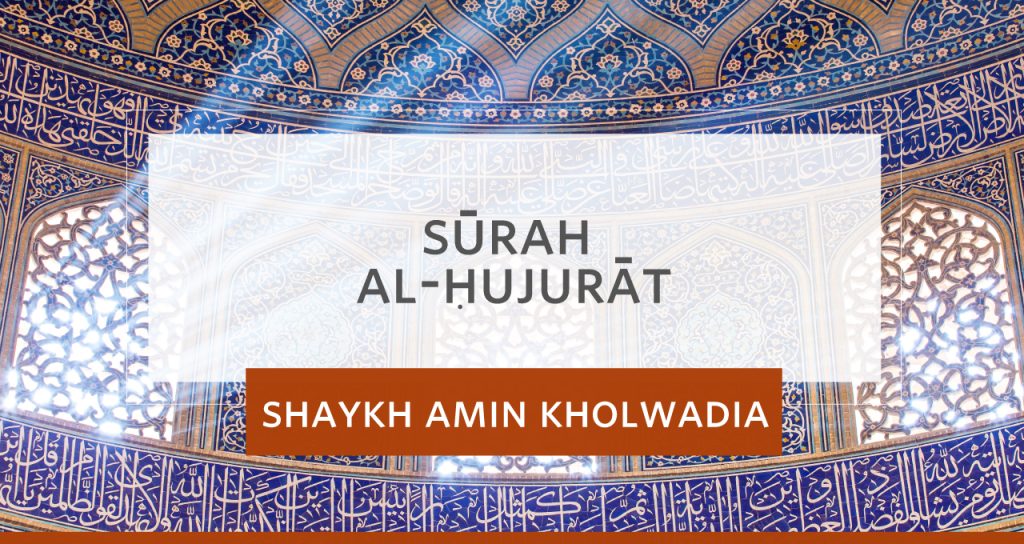SESSION 5, DELIVERED ON 6/19/2022
“When you don’t have any faith nor hope in Allah ﷻ and the ʾummah, writing them off, then this is a great disease.” (Shaykh Amin Kholwadia).
The Prophet ﷺ would meet people smiling and not speak ill of anyone. A good Muslim must do good acts, but also guard against ghībah in speaking and listening to it. We shouldn’t do ghībah (backbiting), meaning to speak ill of somebody behind their back on an act that is true. This tears apart the society. If it’s not true, it’s buhtān (slander), which is 100x worse. Ghībah is a sin against Allah ﷻ and the person you’ve backbit against. We should have a healthy, positive mindset about society. Western society doesn’t include the inner virtues as part of their developed society. As Muslims, we see any external development without the inner virtues of society as just a shell. Allah ﷻ shares the example of what happens in ʿālam al-mithāl (the Allegorical Realm) on what ghībah represents. That is, it’s as if eating the dead flesh of your brother. This is how it will appear on the Day of Judgement. What is the ultimate reason for someone doing ghībah? If it’s for iṣlāḥ (ultimate good for society), like to warn others, testify in court, etc…then, it’s justified.
“Oh humankind Indeed, We have created all of you from a single male and female. Moreover, We have made you peoples and tribes, so you may come to know one another. And, indeed, the noblest of you, is the sight of God, is the most God-fearing of you. Indeed, God is All-Knowing, All-Aware.” (49:13).
The hierarchy of Mecca had a disdain for slaves being part of society. When the Prophet ﷺ entered Mecca, he asked Bilal to make adhān in front of all the Meccan aristocrats. This was difficult for new aristocrats to swallow.
“We can’t judge others based on their ethnicity. It is inhumane to eliminate diversity.” (Shaykh Amin Kholwadia).
Allah wishes for us to maintain our diversity. But, we are to become one in our dīn and virtue. We have to include the ʿĀkhirah (Hereafter) in the language of waḥy. Otherwise, our approach is deficient. When we read al-Qurʾān, we don’t read it with the language of human rights. We read it in the language and context of waḥy. Waḥy is broad, vast, and accommodates all communities, all contexts, and furthermore, all phases of existence.
“It is unjust to disguise Islam in the name of social justice.” (Shaykh Amin Kholwadia).“When your intention is to enter Jannah, you’ll fight injustice wherever it is.” (Shaykh Amin Kholwadia).
Giving up on the ummah is the greatest pollutant among Muslims. When we read the Quran, we don’t read it with the language of human rights. We read it in the language and context of wahy. Wahy is broad, vast, and accommodates all communities, all contexts, and furthermore, all phases of existence. We have to include the Ākhirah in the language of wahy. Otherwise, our approach is deficient. The reason for diversity is so that we know we are different from each other.
In this lecture:
- the evil of ghībah
- the language of wahy
- the methodical dismantlement of the Qurayshi aristocracy in Makkah
- the norms of human behavior and what Islam adds to it

